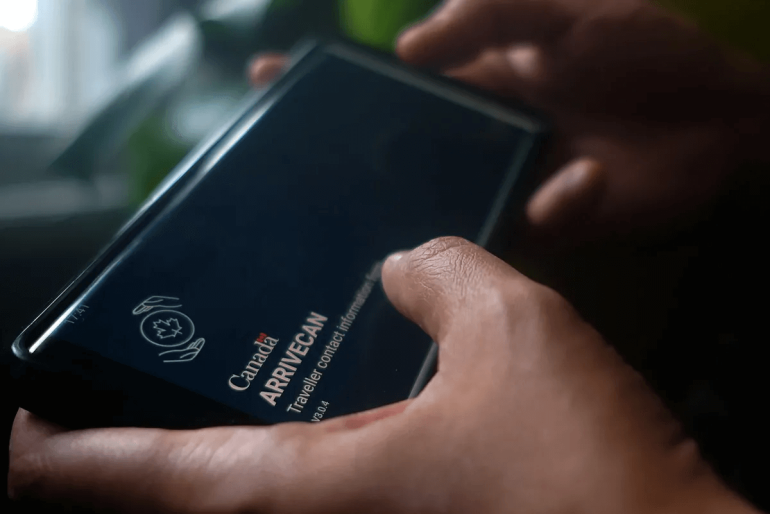The Healthtech Times is a weekly newsletter covering healthtech news from Canada and around the globe. Subscribe to H|T using the form at the bottom of this page to ensure you don’t miss out on the most important healthtech news every week!
RBC continues healthcare strategy with MDBilling acquisition (BETAKIT)
Founded in 2008, MDBilling provides a software-based medical billing solution. According to the company, its platform is used by nearly 9,000 Canadian physicians, with more than $2.3 billion in claims paid for the Ontario Health Insurance Plan (OHIP) since its inception.
Two Canadian tech companies planning hackathons to show ArriveCan should not have cost $54-million (THE GLOBE AND MAIL)
Two Canadian tech firms that build apps for corporate clients, TribalScale and Lazer Technologies, are planning to recreate the ArriveCan app within days as a way of showing federal officials that they should not have spent $54-million on the mobile software.
Innovate BC awards $2.3 million to eight R&D projects (BETAKIT)
Each year, Innovate BC’s Ignite program selects six to eight research projects in the natural resources and applied sciences spaces, awarding up to $300,000 per project. Applicants for the Ignite program are required to secure $2 of external matching dollars for every $1 requested from Innovate BC. External matching dollars can come from industry or government funding, or a combination of both.
Peloton Lays Off 500 Employees in Fourth Round of Cuts This Year (THE NEW YORK TIMES)
Peloton, the beleaguered at-home gym equipment maker, is laying off about 500 employees in the company’s latest effort to bolster its deteriorating finances.
The company will be left with around 3,825 employees after the latest round of job cuts, which account for around 12 percent of its work force, said Ben Boyd, a Peloton spokesman. This is Peloton’s fourth round of layoffs this year. At the end of June 2021, the company employed more than 6,700 people.
Eligible companies can also access additional investment of up to $400,000 from the Ontario Brain Institute, commercialization and funding support from Ontario Bioscience Innovation Organization, and business financing from Clearco.
BetaKit Live: Fighting back against cyber threats (BETAKIT)
In partnership with TELUS Online Security, BetaKit is happy to present a live-streamed panel conversation on what Canadians need to know about cybersecurity threats while providing practical solutions for online protection.
How TD is working to open-source equity education (BETAKIT)
Speaking with BetaKit, Samantha Estoesta, Manager of Equity in Innovation and Programs at TD Lab, explained the origins of the Equity Resource Hub and its core five-step process any company can use to help build more inclusive products and services.
Digital health funding in Q3 slides to 2019 levels as investors make more cautious bets (FIERCE HEALTHCARE)
Digital health companies raised $2.2 billion across 125 deals in the third quarter, marking the smallest funding quarter for all of 2022—in fact, it’s the lowest quarter by dollars raised in digital health since the fourth quarter of 2019, according to the latest quarterly report from Rock Health, a venture fund dedicated to digital health. Startups raised $2.1 billion in the fourth quarter of 2019.
Smart business card startup Ovou wins $110,000 at 22nd New Ventures BC competition (BETAKIT)
Among the top three prizes, Vancouver-based smart business card provider Ovou won first place, securing $110,000. By tapping an Ovou card on a smartphone, users can instantly share a curated professional profile and contact information.
Walgreens Turns to Prescription-Filling Robots to Free Up Pharmacists (THE WALL STREET JOURNAL)
The nation’s second-largest pharmacy chain is setting up a network of automated, centralized drug-filling centers that could fill a city block. Rows of yellow robotic arms bend and rotate as they sort and bottle multicolored pills, sending them down conveyor belts. The company says the setup cuts pharmacist workloads by at least 25% and will save Walgreens more than $1 billion a year.
Francisco Partners picks up benefits software provider bswift from CVS Health (FIERCE HEALTHCARE)
As a part of CVS Health since 2018, bswift expanded its capabilities as a provider of software and services that streamline benefits and human resources administration. Bswift will continue to partner with CVS Health and its subsidiary Aetna, an insurance provider, by sharing benefits solutions with its employees and clients.
InBC reveals direct, indirect investment strategy for $500 million fund (BETAKIT)
The crown corporation has set out some robust targets, including investing $75 million to $125 million in funds focused on pre-seed and seed stage startups. InBC’s investment in early-stage companies will encompass $150 million to $225 million in Series A and B raises through pooled investment funds, with the possibility to invest directly in companies.
Google reveals long-awaited Pixel Watch with Fitbit health tracking (MOBIHEALTHNEWS)
The Pixel Watch, which will start at $349.99, includes continuous heart rate tracking, as well an ECG app that allows users to check for atrial fibrillation – an irregular heart rhythm. They can also use the watch to monitor sleep and how much time people spend in light, deep and REM sleep..
Two Small Fish goes big with third fund, targets $40 million CAD final close (BETAKIT)
Founded in 2014 as an angel investment group, Two Small Fish comes to its third fund with five exits overall, including SkipTheDishes, which exited to the tune of $110 million CAD. Two Small Fish has also invested in Sheertex, unicorn startup Ada, and TealBook.
Mental health startup for seniors rakes in $32M from General Catalyst, Mass General Brigham Ventures, others (MEDCITYNEWS)
There is a dearth of professionals with licenses and training to provide care for seniors’ mental and behavioral health challenges — such as Alzheimer's and other dementias, anxiety and depression. Seattle-based Rippl Care is seeking to change this. The startup just closed a $32 million seed funding round led by ARCH Venture Partners and General Catalyst.
Subscribe to The Healthtech Times
Don’t forget to subscribe to The Healthtech Times using the form below to make sure it hits your email inbox every week!


